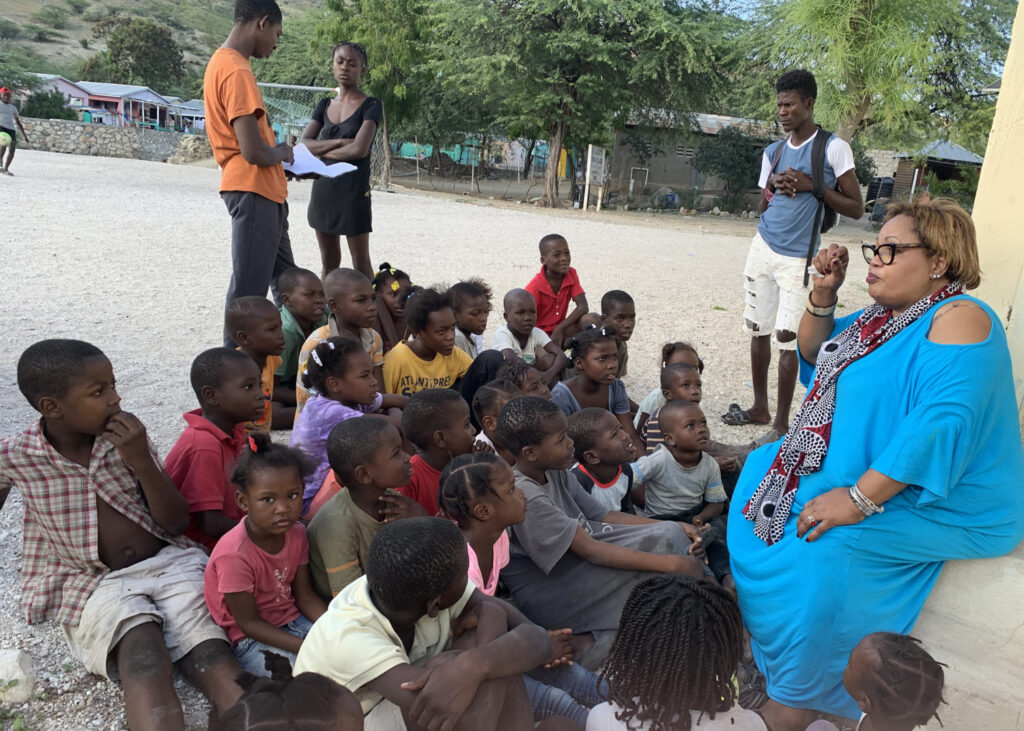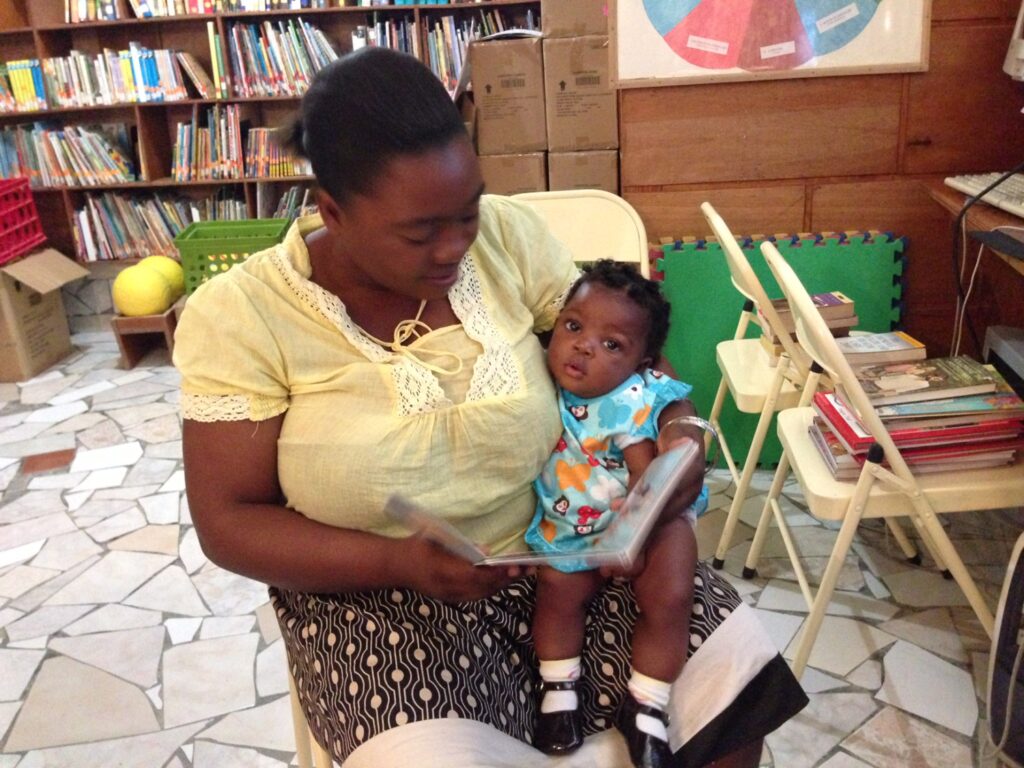
Haiti’s future depends on creative, educated thinkers now growing up and becoming a nation of readers. Our early literacy practices supported by libraries can enable the youngest marginalized learners to freely access books in their own language (Kreyòl), mature with self-confidence and transform into a strong generation of citizens. It all starts with young children excitedly enjoying the pleasure of books at an early age.
This joy should come from reading in the Haitian Mother Tongue, with Kreyòl books which teach, delight, and challenge children. The library can take the role of informing village teachers, parents and caregivers’ knowledge that the earliest years, birth to 4 years old, offer the opportunity for the child’ s brain development to most intensively occur.
Making Books Accessible

Haiti is the least literate country (50% illiteracy) in the Western Hemisphere. Inaccessibility to books and the new insights and idea growth they bring has greatly contributed to this problem. During PILH’s visits to a sample of six rural schools, we discovered “book deserts”; there was not one extra book or a bookshelf to add enrichment in 32 classrooms. There was no source of books. Haiti’s villages are spread apart across the mountains and hills; this geographic isolation yields limited access to age-appropriate books, print materials and reading culture. The 70% of private, mostly rural schools that provide the country’s primary education vary widely in quality but seldom budget for extra books for children’s pleasure or informational reading.
Where there is great poverty, parents, providing for their entire families on less than $2.15 per day, (World Bank, 2021) cannot afford to buy books. Libraries and book corners in proximity, however, can change this paradigm, promote reading, offer diverse books, give young readers’ choices, and ultimately promote the joy and habit of reading which is essential for lifelong curiosity and learning.
The Importance of Kreyòl
PILH advocates that all children learn to read in their own language, the Mother Tongue, Haitian Kreyòl, the spoken language of 95% of the 11.5 million inhabitants of Haiti. In February 2022, the Minister of Education proclaimed that all Haitian public schools should use the Kreyòl language for instruction of children aged 3 to 8 years old. The previous language has been colonial French, often with rote learning, which has frustrated struggling readers and been a major factor leading to 70% of Haitian children dropping out before sixth grade. (Read More Here)